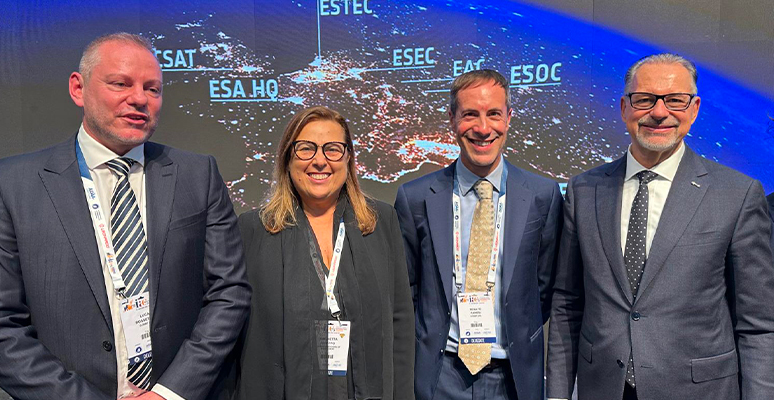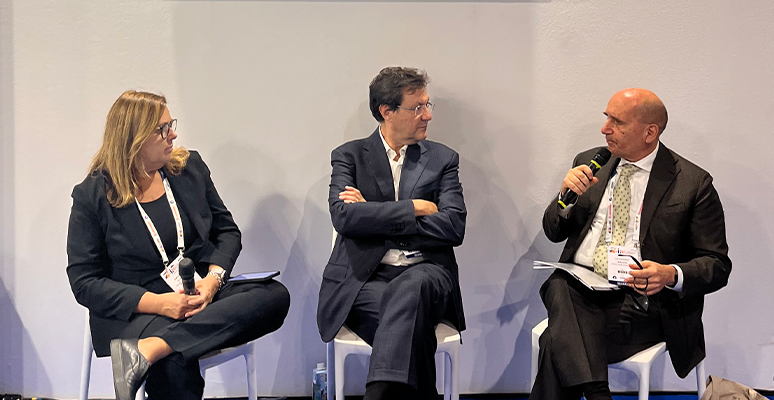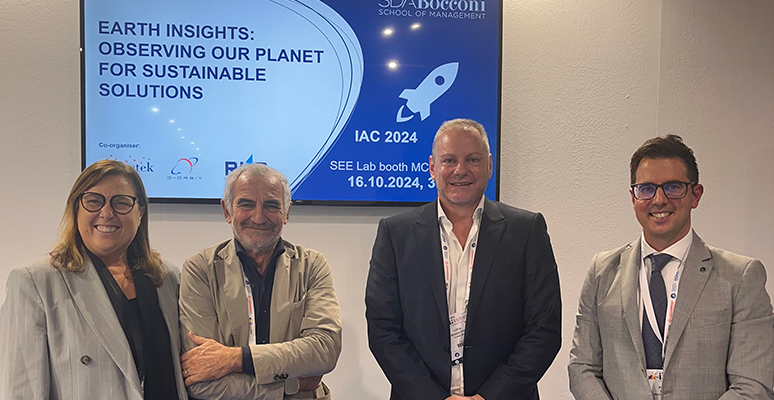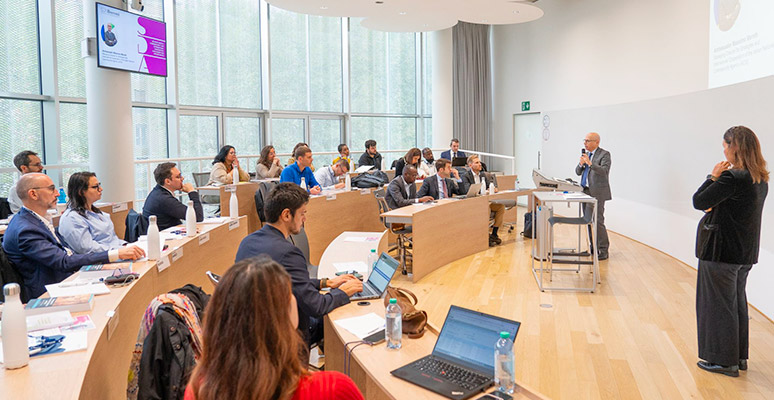
- Start date
- Duration
- Format
- Language
- 2 mar 2026
- 12 days
- Class
- English
To grasp international art market dynamics and understand the roles of collectors, investors, galleries, advisors, fairs, and auction houses.
Last week was the most important of the year for SEE Lab and the global space economy. Milan hosted a record-breaking edition of the International Astronautical Congress (IAC), with the Space Economy Evolution Lab from SDA Bocconi School of Management participating in full force. Its Director, Simonetta Di Pippo, was joined by researchers Filippo Papamarenghi and Filippo Borgogno, with support from Matteo Nori, Daiana Cotoara, and students Beatrice Alemanni and Pietro Bazzotti.

With over 200 exhibitors from 45 countries, 12,000 attendees (half of them under 35, demonstrating the renewed interest in space in recent years), 26 astronauts, and 46 national and continental space agency heads and Ministers, the Milan edition achieved unprecedented numbers.

The SEE Lab's booth hosted five events: three organized in collaboration with lab members and partners (Intesa Sanpaolo, Deloitte, and RINA, D-Orbit, and Planetek) and two showcasing important agreements with Women in Aerospace Europe and Unidroit.
Additionally, SEE Lab Director Simonetta Di Pippo was involved in numerous bilateral meetings, which opened significant research opportunities. She also moderated a session at Leonardo's pavilion with notable participants, including Teodoro Valente, President of the Italian Space Agency; Aarti Holla-Maini, Director of the United Nations Office for Outer Space Affairs (UNOOSA); Simonetta Cheli, Director of Earth Observation Programmes at the European Space Agency (ESA); and Massimo Comparini, Managing Director of Leonardo's Space Business Unit.

“Italy is one of the few countries worldwide that can boast companies active across the entire space economy value chain,” says Di Pippo. “IAC 2024 attracted visitors from all over the world, with Italians making up only a quarter of the total, despite being the most represented.”
However, measuring such vast activity is challenging, primarily due to the difficulties in defining what constitutes the space economy. “Today,” Di Pippo explains, “there are hundreds of seemingly unrelated activities that rely on the space economy for their very existence. Without satellites, for example, GPS navigation and services like delivery wouldn’t exist, but evaluating the sector is becoming increasingly complex. So, where can we draw the line between what is and isn’t part of the space economy?” This is the main question the SeeData project aims to address, with the goal of mapping activities and quantifying their value with a high degree of accuracy.

“Current estimates from various international entities,” continues Di Pippo, “differ significantly, even though they theoretically start from the same data. The reason lies in the top-down processes they adopt, beginning with macro-level definitions and assumptions before narrowing down. We, on the other hand, work the opposite way, starting from individual activities and aggregating them in a bottom-up process.”
The SeeData project was the subject of a scientific paper presented by SEE Lab researchers at the IAC.
SDA Bocconi School of Management

To grasp international art market dynamics and understand the roles of collectors, investors, galleries, advisors, fairs, and auction houses.

